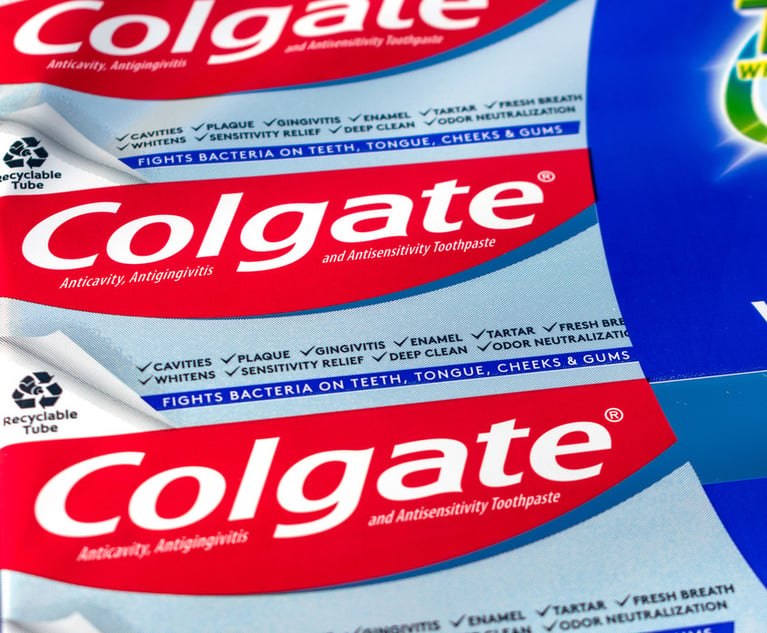UK Lit Funders Accuse Australian Business Groups of Untruths, 'Anti-Foreigner' Rhetoric
Business groups are claiming that litigation funders have caused a surge in shareholder class actions, but funders say if there has been a surge, it's because of corporate malfeasance.
June 19, 2020 at 05:01 PM
6 minute read
U.K.-headquartered litigation funders have accused big business in Australia of peddling myths about litigation finance and adopting "anti-foreigner" rhetoric in a bid to have the industry more tightly regulated.
The funders also told an Australian parliamentary inquiry focused on class actions that a planned requirement for them to have a license would push many foreign players out of the market and reduce competition in the sector.
The firms are fighting a rearguard action against licensing after the Australian government announced last month it would require litigation funders to be licensed and comply with investment fund regulations following complaints from business groups that claimed they were causing a surge in shareholder class actions.
But funders question that claim, and say if there has been a surge, misbehavior by companies is the cause.
"The foremost factor driving any increased prevalence of class actions in Australia, if in fact that is occurring, is the repeated instances of corporate misconduct, as was evidenced at a systemic level in the banking and financial services industries by Commissioner Hayne in the recent Royal Commission," said U.K.-headquartered Therium Capital Management in reference to last year's banking inquiry that has sparked several class actions against banks.
Business groups such as the Australian Institute of Company Directors and the Australian Industry Group said the prevalence of litigation funders was responsible for the A$10 billion in class actions filed against companies last year and is pushing up costs for businesses.
"It appears the motivation for this type of hyperbole is for big business interest groups to focus the inquiry on litigation funding returns and distract from the economic and social benefits provided by litigation funders to assist ordinary Australians to seek recompense at the expense of business enterprises when they have broken the law," said Augusta Ventures, a London-headquartered funder.
"There is a confected narrative in Australia currently, with sections of the Australia media and defense bar making repeat references to unregulated 'cowboy' litigation funders making 'extraordinary profits' at the expense of ordinary 'mum and dad' plaintiffs," U.K.-based Harbour Litigation Funding argued in its submission to the inquiry. It accused the U.S. Chamber of Commerce of being a key driver of the narrative.
The parliamentary inquiry is examining "whether the present level of regulation applying to Australia's growing class action industry is impacting fair and equitable outcomes for plaintiffs."
It is also looking into fees, costs and commissions earned by litigation funders and the impact of litigation funding on the damages and other compensation received by class members in class actions.
Funders defend their fees, arguing that by backing legal action they are providing access to justice for plaintiffs who could not otherwise afford to engage lawyers to run a case on their behalf.
"While true that plaintiffs recover less than 100% of their damages with their claims funded, many would receive nothing at all without the support of litigation funding, and this is a concern when such claims are meritorious," Harbour Litigation Funding said in its submission to the inquiry.
Many funders submitted that the courts and judges are better placed to ensure that cases are conducted in the best interests of plaintiffs and that plaintiffs receive a fair share of any damages, an approach endorsed by the government's Australian Law Reform Commission in a report released in 2018.
"This check [by courts and judges] is also advantageous in that it is specific to the facts of the case, so is able to be adjusted to particular circumstances, rather than being a one-size-fits-all approach to pricing," said Therium, which is registered in Jersey and claims to be the world's most active funder.
But the government is pushing ahead with its requirement that litigation funders be required to hold an Australian Financial Services License (AFSL), which is also required for financial advisers, sellers of financial products and the managers of investment schemes.
Therium argues that imposing licensing requirements may prove to be a barrier to entry and lessen competition in the funding industry by increasing the costs of compliance, particularly for foreign funders. This in turn could push up the costs ultimately borne by plaintiffs.
"Competition in the last few years has largely been driven by international funders entering the Australian market. Many of these new entrants may be disadvantaged in complying with AFSL license conditions as their management and main operations are headquartered overseas," Therium said. "This may provide an unfair advantage to Australian-headquartered funders and could ultimately lead to certain funders exiting the market."
Balance Legal Capital questioned whether the objective of those calling for regulation of litigation funders was to "discriminate in favour of local litigation funders" by increasing costs for overseas-based funders.
"There is an unfortunate 'anti-foreigner' tone to some of the reporting on litigation funding in Australia and statements made in relation to regulation and taxation," the London-based funder said.
"We are concerned that the system is in danger of being dismantled under the influence of misconceptions about litigation funding promulgated by big business and others that are exposed to class actions when they breach relevant laws that cause loss to investors, customers or other stakeholders."
While most funders share concerns about claims that they are causing more class actions, increasing costs for businesses, and earning excessive fees at the expense of plaintiffs, some support the introduction of a licensing regime.
Litigation Capital Management, which was founded in Australia and is listed on London's AIM market, already has an AFSL and says all funders should be required to have one. The licenses should also require funders to regularly lodge publicly available audited financial statements and to have net tangible assets of $5 million.
Australian funder Omni Bridgeway also supported the planned licensing regime and said it has previously held an AFSL and intends to reapply for one in the future. It is concerned that under the current "light touch" regulatory regime, there is no capital adequacy standard to ensure funders could meet their financial obligations, such as paying costs if it funds an unsuccessful class action.
It also called for the introduction of legislation to require a minimum return to group members in a funded Australian class action of no less than 50% of the gross proceeds from the action.
Read More:
Australian Business Group Calls for Regulation of Litigation Funders and Plaintiff Firms
US Chamber of Commerce Accused of Meddling in Australian Class Action Reform
This content has been archived. It is available through our partners, LexisNexis® and Bloomberg Law.
To view this content, please continue to their sites.
Not a Lexis Subscriber?
Subscribe Now
Not a Bloomberg Law Subscriber?
Subscribe Now
NOT FOR REPRINT
© 2025 ALM Global, LLC, All Rights Reserved. Request academic re-use from www.copyright.com. All other uses, submit a request to [email protected]. For more information visit Asset & Logo Licensing.
You Might Like
View All
Law Firm Sued for Telemarketing Calls to Customers on Do Not Call Registry

Colgate Faces Class Actions Over ‘Deceptive Marketing’ of Children’s Toothpaste

Ill. Class Action Claims Cannabis Companies Sell Products with Excessive THC Content
4 minute read
Trending Stories
- 1New York-Based Skadden Team Joins White & Case Group in Mexico City for Citigroup Demerger
- 2No Two Wildfires Alike: Lawyers Take Different Legal Strategies in California
- 3Poop-Themed Dog Toy OK as Parody, but Still Tarnished Jack Daniel’s Brand, Court Says
- 4Meet the New President of NY's Association of Trial Court Jurists
- 5Lawyers' Phones Are Ringing: What Should Employers Do If ICE Raids Their Business?
Who Got The Work
J. Brugh Lower of Gibbons has entered an appearance for industrial equipment supplier Devco Corporation in a pending trademark infringement lawsuit. The suit, accusing the defendant of selling knock-off Graco products, was filed Dec. 18 in New Jersey District Court by Rivkin Radler on behalf of Graco Inc. and Graco Minnesota. The case, assigned to U.S. District Judge Zahid N. Quraishi, is 3:24-cv-11294, Graco Inc. et al v. Devco Corporation.
Who Got The Work
Rebecca Maller-Stein and Kent A. Yalowitz of Arnold & Porter Kaye Scholer have entered their appearances for Hanaco Venture Capital and its executives, Lior Prosor and David Frankel, in a pending securities lawsuit. The action, filed on Dec. 24 in New York Southern District Court by Zell, Aron & Co. on behalf of Goldeneye Advisors, accuses the defendants of negligently and fraudulently managing the plaintiff's $1 million investment. The case, assigned to U.S. District Judge Vernon S. Broderick, is 1:24-cv-09918, Goldeneye Advisors, LLC v. Hanaco Venture Capital, Ltd. et al.
Who Got The Work
Attorneys from A&O Shearman has stepped in as defense counsel for Toronto-Dominion Bank and other defendants in a pending securities class action. The suit, filed Dec. 11 in New York Southern District Court by Bleichmar Fonti & Auld, accuses the defendants of concealing the bank's 'pervasive' deficiencies in regards to its compliance with the Bank Secrecy Act and the quality of its anti-money laundering controls. The case, assigned to U.S. District Judge Arun Subramanian, is 1:24-cv-09445, Gonzalez v. The Toronto-Dominion Bank et al.
Who Got The Work
Crown Castle International, a Pennsylvania company providing shared communications infrastructure, has turned to Luke D. Wolf of Gordon Rees Scully Mansukhani to fend off a pending breach-of-contract lawsuit. The court action, filed Nov. 25 in Michigan Eastern District Court by Hooper Hathaway PC on behalf of The Town Residences LLC, accuses Crown Castle of failing to transfer approximately $30,000 in utility payments from T-Mobile in breach of a roof-top lease and assignment agreement. The case, assigned to U.S. District Judge Susan K. Declercq, is 2:24-cv-13131, The Town Residences LLC v. T-Mobile US, Inc. et al.
Who Got The Work
Wilfred P. Coronato and Daniel M. Schwartz of McCarter & English have stepped in as defense counsel to Electrolux Home Products Inc. in a pending product liability lawsuit. The court action, filed Nov. 26 in New York Eastern District Court by Poulos Lopiccolo PC and Nagel Rice LLP on behalf of David Stern, alleges that the defendant's refrigerators’ drawers and shelving repeatedly break and fall apart within months after purchase. The case, assigned to U.S. District Judge Joan M. Azrack, is 2:24-cv-08204, Stern v. Electrolux Home Products, Inc.
Featured Firms
Law Offices of Gary Martin Hays & Associates, P.C.
(470) 294-1674
Law Offices of Mark E. Salomone
(857) 444-6468
Smith & Hassler
(713) 739-1250









